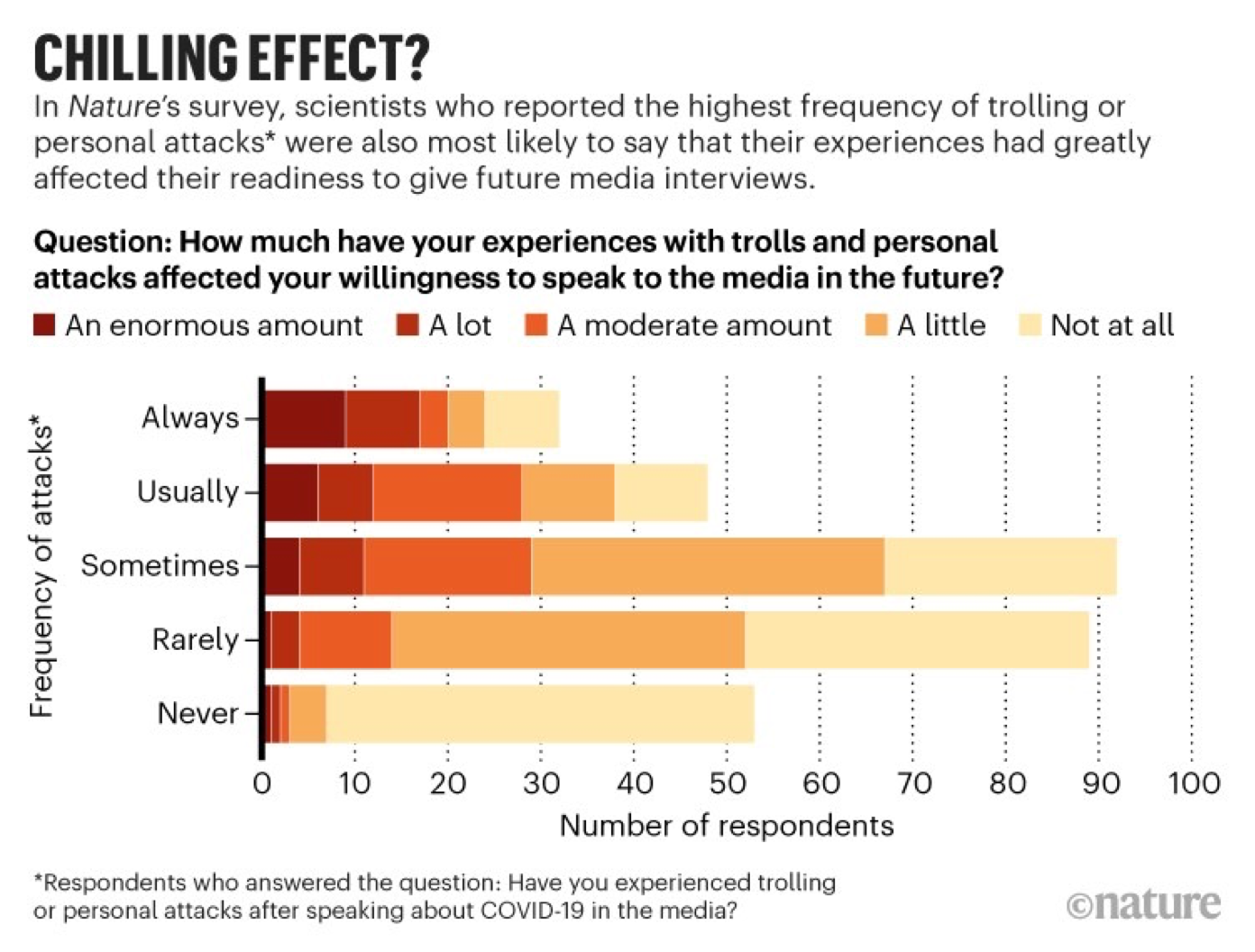Harassment Against Scientists Is Out of Control

Last week Peter Hotez experienced pile-ons, stalking, and bullying after events unfolded on Twitter. So much so that law enforcement got involved. A complete nightmare.
He’s not alone. These nightmares are now a common occurrence for scientists and physicians in public health. Both online and offline. For vaccines. For gun violence. For reproductive health. And apparently for wildfires now, too.
It’s gotten out of control, which becomes an individual risk as well as a risk to the communities we serve.
Hotez’s experience is not uncommon
Many scientists and physicians have similar stories. Harassed at coffee shops. Death threats, doxxing (private information had been shared), hacking, and getting sued. Hand-written letters in the mail. Emails pointing gun barrels at them. Heads added to fake pornographic pictures. Heckled after leaving work. Needing full-time security details. Moving states to escape threats.
I have experienced almost all of these in three short years. Others have too. We don’t just hear each others stories; we see it in the numbers, too. A recent study surveyed 350 scientists about social media commentary:
-
2 out of 3 scientists reported harassment related to comments made about the COVID-19 pandemic
-
1 in 5 reported doxxing
Another study in Nature asked scientists what types of harassment they experienced. Fifteen percent reported death threats.
While these surveys do have a potential for bias—those who experience harassment are more likely to fill out a survey—different data angles show a consistent story:
-
Before the pandemic, harassment against scientists wasn’t nearly as high
-
Compared to the general public, the rate of harassment against scientists is higher
-
Scientists posting public health messages on social media were more likely to receive online harassment than those who don’t
-
Of course, harassment isn’t new to other scientists, like climate experts
Women scientists are particularly at risk
Watching gender differences unfold has been particularly jarring, particularly as a woman scientist. Women experience harassment differently:
-
1 in 3 report being sexually harassed online, more than their male counterparts
-
Targeted for harassment because they are female
-
Women report more emotional stress related to the threats than men
This is a huge problem
Scientific communication, combatting misinformation, and bringing scientific dialogue to social media is dependent on volunteers. Because of this, too often scientists assume the consequences alone. This takes a significant personal toll.
After a while, this risk is just not worth it. Scientists reach a tipping point—whether it be a health event, a threat becoming too real, or just exhaustion. When they stop interacting, the gap between science and community only grows wider allowing misinformation and disinformation to fill the void. This takes a toll on communities.
The tipping point has already been reached for many. Axios, for example, reported that scientists are leaving Twitter in droves. In another survey, scientists who reported higher frequencies of trolling or personal attacks were most likely to say that their experiences had greatly affected their willingness to speak about science in the future in media interviews.
Public health is inherently political. And, it’s “public,” meaning it requires buy-in from the public. It needs to be a bi-directional conversation with the public. Rapid, widely accessible scientific dialogue was a life saver during the pandemic: scientists talking to each other, to the community, to media. Scientists listening to the community. We need this in the future, especially if we don’t fix root causes of mis- and disinformation. A conversation can include disagreement, but this means civilized conversations rather than pile-ons and ridiculousness.
Bottom line
We need scientists to speak more than ever. We need communities to join the scientific conversation. At the same time, we need threats to be clearly and unanimously rejected. Denounced by our communities, but also denounced by institutions through action. If not, more and more will wonder: is the juice worth the squeeze?
Love, YLE
“Your Local Epidemiologist (YLE)” is written by Dr. Katelyn Jetelina, MPH PhD—an epidemiologist, wife, and mom of two little girls. During the day she is a senior scientific consultant to a number of organizations. At night she writes this newsletter. Her main goal is to “translate” the ever-evolving public health world so that people will be well equipped to make evidence-based decisions. This newsletter is free thanks to the generous support of fellow YLE community members. To support this effort, subscribe.



